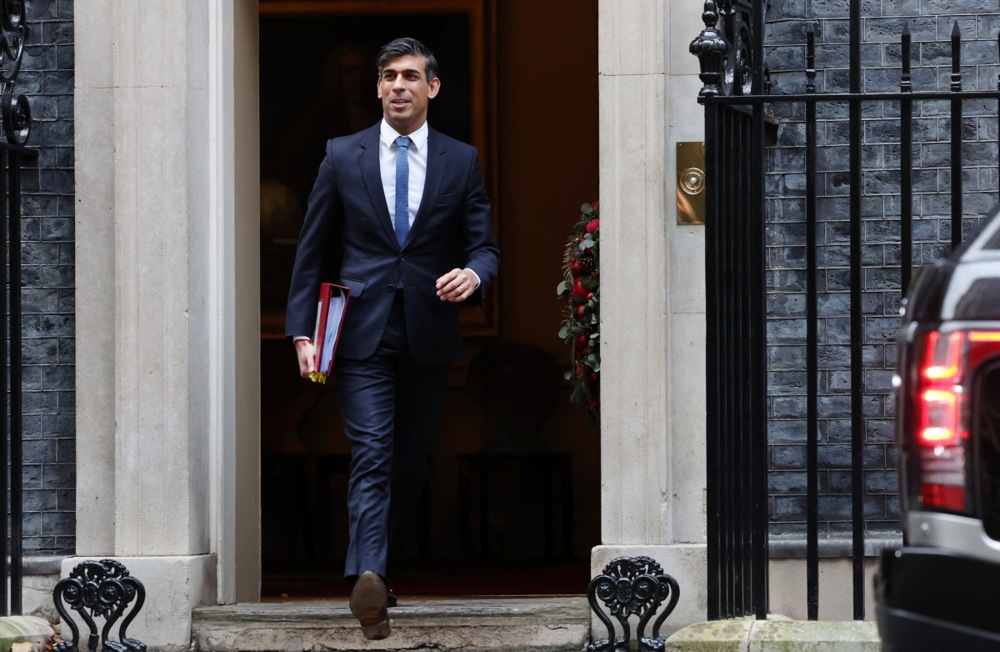The Conservative Party is heading for a historic defeat in the UK’s general election on July 4. Projections published by this week’s Sunday Times, based on a massive 22,000 sample MRP poll by Survation, predict that the Tories will be reduced to 72 seats, from the 365 they won at the last election in 2019.
With the UK’s first past the post electoral system, Labour is projected to win 456 – more than double its 202-seat 2019 haul – out of 650 in the House of Commons on 40 per cent of the vote. In this survey, Nigel Farage’s Reform is predicted to win seven seats, on 12 per cent of the vote.
My hunch is that the actual results will not be quite as dramatic, but only someone extremely brave, or a fool, would suggest that Keir Starmer will not become Prime Minister sometime on July 5.
When and why has it gone so very wrong for the Tories? Let’s go back to the first week of October 2021. The Conservatives were holding their party conference in Manchester – and the party was riding high. Boris Johnson was still securely ensconced in Downing Street and was the darling of the Conservative grassroots. Brexit had been successfully delivered.
The Covid lockdowns and the vast government bailouts which went alongside them – whilst, I would argue, were terrible, infantilising, unaffordable welfarist policies with few upsides – were undoubtedly popular with the public at large. Boris had had a good lockdown.
At Manchester all the talk was about how the party had the 2024 election in the bag, that was not a concern. What was discussed is how the Conservatives could win the following election.
The previous week’s Labour conference in Brighton was a much less happy affair, with speculation about whether Starmer could survive as Labour leader until the election.
But things started going wrong for the Tories early that November. Owen Paterson, a prominent Brexit-supporting Conservative MP and former Agriculture and Northern Ireland cabinet minister, had been found by the Parliamentary Standards Commissioner to have breached the House of Commons lobbying rules after he returned to the back benches. The Commons Committee on Standards recommended that he be suspended from the House for 30 days.
The Boris Johnson government decided to use their Commons majority to overturn this suspension. While this vote was won on November 3, the backlash against the move was so bad that very swiftly the government U-turned and went back to the Commons to reinstate the original punishment. (Paterson had decided to resign by then).
This might seem like a minor incident, but it was a watershed. Before then most things seemed to be going right for the Tories. After that pretty much nothing did. Soon Johnson’s Downing Street operation was engulfed in stories about its breaches of the lockdown rules it had itself imposed. Its cavalier attitude towards the Paterson affair came to be seen as totemic for his government’s attitude as a whole.
Boris was forced out the following summer – and both the prime minister for 49 days Liz Truss and her successor Rishi Sunak have been unable to turn matters around. Indeed, they have become very much worse.
What Liz Truss managed to destroy was the Tory reputation for economic competence. She decided on a Reaganite programme of steep tax cuts in order to stimulate economic growth – Reaganite, not Thatcherite, in that the two were quite different in their attitude to tax cuts, with Thatcher being much more cautious, indeed generally opposed, to cutting taxes simply on the expectation of future economic growth.
Truss may well have been right in her diagnosis of what is wrong with the British economy. Her policies may even have worked if they had been given the chance. But she spooked the markets, caused a panic among pension funds and the Tories lost their reputation for economic confidence.
A government which manages the economy well will be forgiven a lot. If it – rightly or wrongly and probably wrongly in this case – becomes a byword for economic incompetence it will be forgiven nothing.
Additionally all five Tory prime ministers since 2010 have utterly failed at coming to grips with immigration. When David Cameron came to office in 2010, the first Conservative led government for 13 years, net migration (those coming in, less those leaving) stood at 256,000 – and the Tories pledged to reduce it to the tens of thousands.
By the time of the Brexit vote in 2016, net migration was still at around 250,000, and the Tories were still pledging to reduce it to the tens of thousands. Post Brexit, in 2022, net migration stood at over 700,000.
Whilst the Brexit vote had many multifarious causes, and immigration was probably less central to it than many of its opponents imagine, the public had certainly not voted to double net migration.
So rightly or wrongly – in some ways rather unfairly – the Tories have acquired a reputation for self-interested sleaze and double standards, economic incompetence and an inability, or unwillingness, to control Britain’s borders. Is it any wonder they are heading for defeat?






Britain’s Conservative Party is heading for a historic defeat – and it is gradually waking up to the fact that it will be the party’s own fault